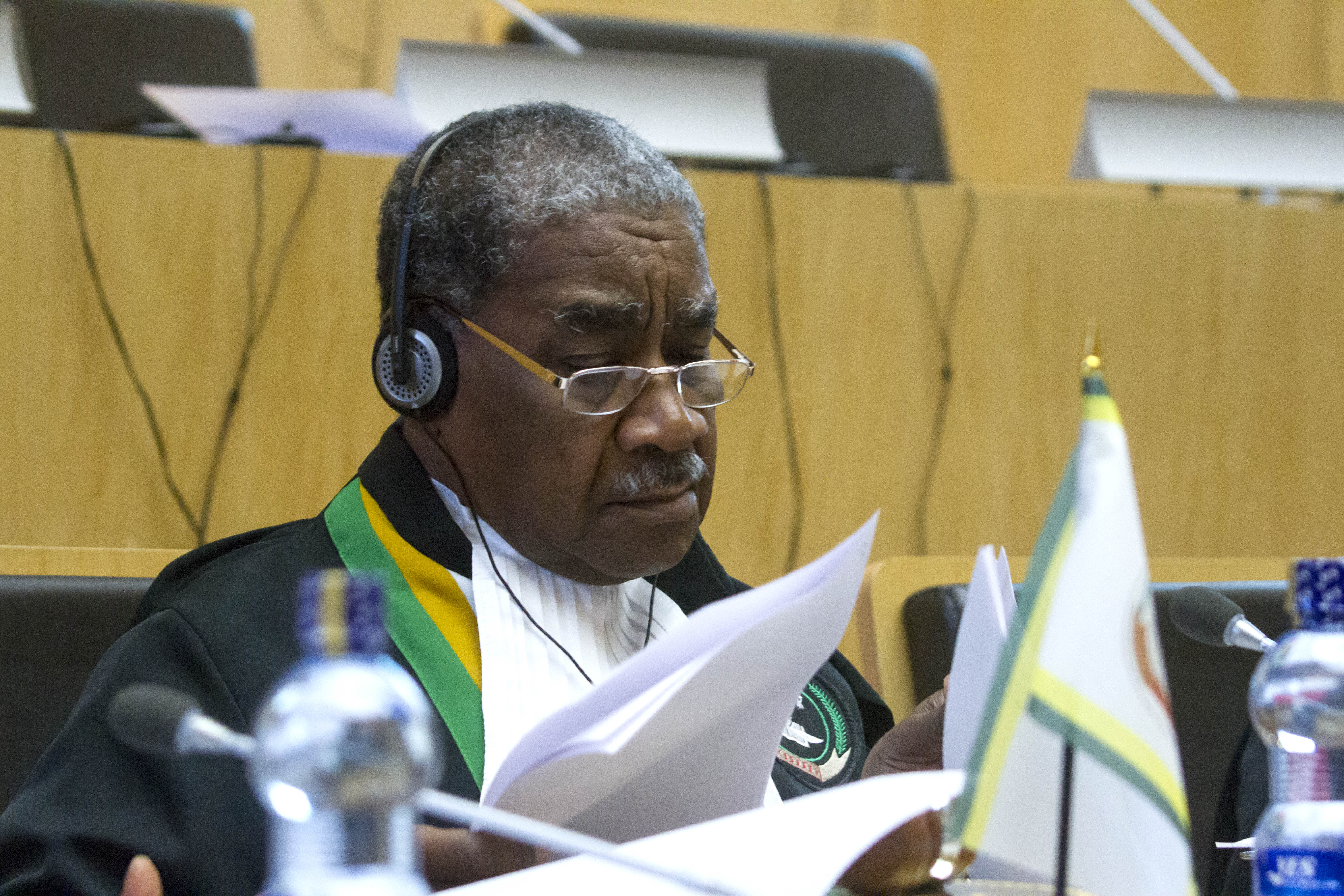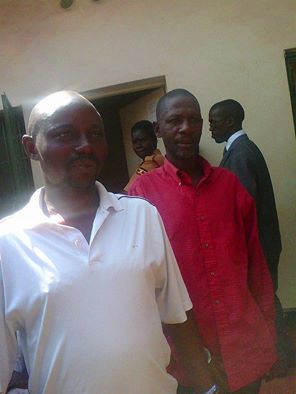The race for the presidency in Tanzania has attracted the current President of the African Court on Human and Peoples’ Rights, Justice Augustino Ramadhani.
The former Chief Justice of Tanzania, Justice Ramadhani, joins more than 30 other candidates from the ruling Chama Cha Mapinduzi (CCM) party in the race to succeed President JakayaKikwete who completes his mandatory five-year two terms in October.
The CCM has ruled for five decades and is considered foregone that whoever wins its nomination on July 12 is all but certain of taking office after Kikwete.
He brings an unusual combination of being a jurist, army officer, pianist, pastor and a christian from Zanzibar’s predominantly Muslim community.
If he succeeds, he will only be the second Union President to hail from Zanzibar after Ali Hassan Mwinyi (1985-1995).
“I have the intellectual resources that could play a pivotal role in helping the country fight all problems bedeviling the country. I do not fear anybody in this race because I retired from the army with the rank of Brigadier General, and it is impossible for a senior member of the army to fear people,’’ he quipped after picking up the nomination forms in Tanzania’s capital city of Dodoma yesterday.
Unlike the majority of CCM cadres announcing their presidential ambition in pomp, colour and style–not to mention supporters escorting them as they picked nomination forms and during their rallies–Judge Ramadhani was flanked by his wife Saada, his cousin Louis Majaliwa and a few members of his family.
“I have faithfully worked for this country for more than 40 years,” he said. “I have never solicited or received any form of bribe and never have I been implicated in any corruption scandal,” he was quoted by the media to have said.
The former UN Deputy Secretary General Dr.Asha-Rose Migiro is also among front runners; aiming to become Tanzania’s first woman president. Also in the list are former Prime Minister Edward Lowassa and incumbent Foreign Affairs Minister Bernard Membe.
Other notable candidates include Vice President Mohamed Gharib Bilal, Prime Minister MizengoPinda, former Speaker Samuel Sitta and MakongoroNyerere, son of the country’s first president, Julius Nyerere.
Analysts believe that the disjointed opposition would struggle to mount a challenge by fielding a single presidential candidate in the October 25 election.
Tanzania has seen peaceful transitions to different presidents since multi-party politics returned in 1995.
Profile Justice Augustino S.L. Ramadhani
Justice Augustino S.L. Ramadhani hails from the United Republic of Tanzania.
He was elected Judge of the African Court on Human and Peoples’ Rights in 2010 for a six year term.
He holds a Bachelor of Laws Degree from the University of East Africa (1970), a Master of Laws from the University of Dar es Salaam (1978) in International Law (the law of armed conflict) and a Bachelor of Divinity from the University of London (2004).
Immediately after obtaining his first degree Justice Ramadhani joined the Tanzania Peoples’ Defence Forces. After training in the Tanzania Military Academy, he was commissioned as a Second Lieutenant and reached the rank of Brigadier General when he was voluntarily released in 1996 when Tanzania resumed multiparty democracy.
Prior to being appointed Judge of the African Court, Justice Ramadhani was a Justice of Appeal of the United Republic of Tanzania from 1989 to 2010 when he retired after attaining the compulsory retirement age of 65 years. In his last three years on the bench he was the Chief Justice of Tanzania from 2007 to 2010. Justice Ramadhani was also the Chief Justice of Zanzibar from 1980 to 1989.
He had served as a Judge of the East African Court of Justice from 2001 to 2007.
From 1993 to 2003 Justice Ramadhani was the Vice Chairman of the National Electoral Commission which conducts presidential, parliamentary and local government elections in the United Republic of Tanzania.
He held the same position in the Zanzibar Electoral Commission from 2002 to 2007. He was the Chairman of Executive Council of the Southern African Development Community (SADC) Electoral Commission Forum in 2006 and 2007.
He has published articles on Human rights, such as ‘Promoting a New Economic Order in Developing Countries: A Role for Human Rights Organizations’, published in Speaking about Rights (Canada Human Rights Foundation Newsletter), Vol. XI No. 3/1996, and ‘Electoral Process in a Multiparty Democracy’, a chapter in the book Fundamental Rights and Freedoms in Tanzania, (MkukinaNyota Publishers, 1978).
Story By Catherine Ageno








